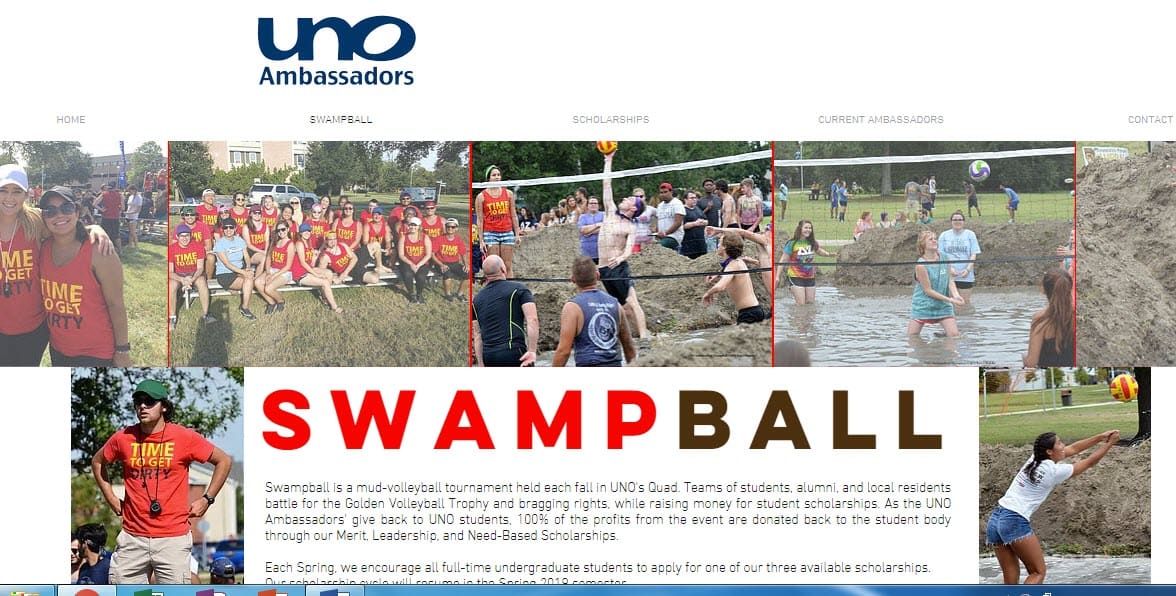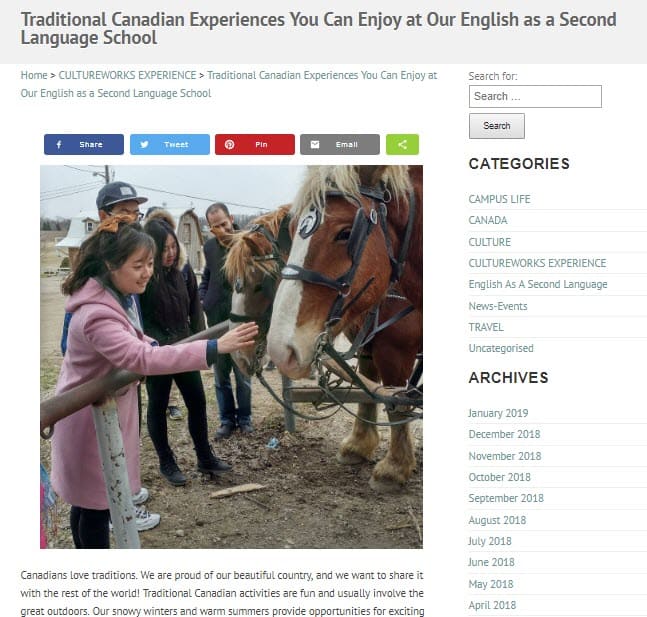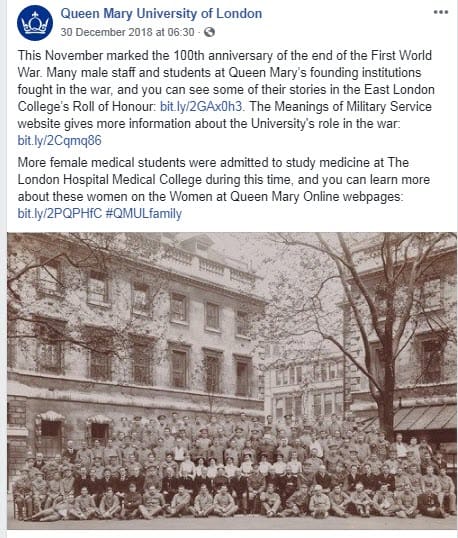
The location of a school can be a huge factor in the decision-making process of prospective students at all levels. Whether they are looking at future career opportunities after they graduate, the attractions and local culture they can look forward to, or just practical things like the cost of living or climate, the city, town, region, or even country you are based in will often dictate just how much success you have targeting both international and local students.
While every place has its own advantages and disadvantages, effectively emphasizing your location’s strengths can be the key to turning it into a huge asset in your student recruitment efforts. This can be accomplished through concerted efforts across all channels to place it at the heart of your digital marketing strategy.
1. Showcase Your School’s Location Visually
When was the last time to you took a good look around your campus, town, or surrounding area? Often, when you live in a place for a long time it can be easy to stop noticing and appreciating its beauty, but taking some time to look for attractive architecture, eye-catching landmarks, or stunning natural scenery in your location can help you to source captivating visuals for your online student recruitment campaigns.
Whether they are in big cities, rural areas, or by the sea, many schools will regularly share stunning images of their surroundings across social media sites like Instagram and Facebook. Because social media users tend to be very visually oriented, these posts will often attract high amounts of engagement and shares, particularly from current or past students.
Example: This recent Instagram post from Boston University captures a picturesque winter scene in the school’s home city.

Visuals of your location can be an excellent addition to your website, too, adding a bit of flair and personality to your design.
Example: Unity College is located in rural Maine. The school uses images of its beautiful natural surroundings to create backdrops for a number of its web pages.

The key to capturing great shots of your surroundings is recognizing what makes your location unique. If you are in the middle of a big city, for instance, you might try and take pictures of interesting local landmarks, or just capture the hustle and bustle of crowds in busy, lively areas.
If you are in a more rural setting, on the other hand, you may want to focus more on nature shots, showcasing the natural beauty of your landscape. Larger schools like universities may find plenty of images in both categories right on their campus. Wherever you are, there is always a way to create content that will highlight the visual appeal of your surroundings.
2. Get Current Students to Talk About Their Experiences Studying in Your Location
What would your current students say is the best thing about studying in your location? Perhaps there is lots to see and do? Or your town is very cheap and student-friendly? Or maybe the local community is just very welcoming?
Whatever your location’s unique advantages, getting your current or past students to talk about them online can be a great way to highlight them.
Student testimonials can posted as written articles on your website, as text posts with accompanying visuals on social media, or even as Stories on sites like Instagram, Snapchat, and Facebook. They can also make great video content, and should be relatively simple and cheap to shoot.
Example: Kaplan Pathways posted this video on Instagram of one of their student ambassadors talking about her favourite spots in London.

This kind of content serves as a valuable form of social proof, offering prospects endorsements of your school that they can trust from peers with similar tastes and needs. By creating testimonials that focus on your location, you can reassure those who are unfamiliar with it that it does indeed offer everything you claim it does.
3. Highlight Local Event in Your Online Student Recruitment Efforts
Most schools have a few major occasions that are highlights of their calendar. These might be things that are happening in your local area, like an annual festival or a holiday, or events your institution organizes itself, such as a trip to a nearby attraction or a large social gathering or concert.
Example: Delfin English School regularly organizes excursions for its students to visit attractions near its campuses in Ireland and the UK. This post on Instagram captured a trip to Malahide Castle in Dublin.

Keeping these occasions in mind can provide you with a regular source of great content across different digital channels. Highlighting an event on social media, for example, can help you to recruit students online by capitalizing on times when interest in your school and location is likely to be higher than normal.
Example: Concordia University in Montreal posted this photo on Instagram from the city’s annual Mural Festival. Note how the school have used location and event-specific hashtags to increase the post’s visibility.

You can also create web content about particular events to allow prospective students who might not be familiar with them to learn more about their history, what they entail, or anything they might need to know if they wanted to attend once they enroll.
Example: The University of New Orleans website includes a dedicated information page about its ‘Swampball’ event, a unique mud-volleyball tournament the school hosts every year.

Focusing on unique occasions that students can experience when studying at your school will get them looking forward to the memories they will create, and make them excited to find out more.
4. Highlight Authentic Local Culture Experiences for Students
Experiencing local culture can also be important to students from elsewhere. They may want to try new or unfamiliar local speciality cuisine, experience the area’s music or arts scene, or just socialize and meet with local people.
Your school can capitalize on these motivations by creating content that offers insider information or tips about interesting places to go or unique experiences they can have, or just explaining unusual cultural norms or rituals.
Example: Canadian ESL Pathway provider CultureWorks regularly blogs about authentic cultural experiences students can have during their time at the school.

This kind of content will not only serve to get students more interested in your location as a study destination, but will also help them to integrate and become more immersed in your local community once they get there.
5. Focus on Your Location’s Unique History
To give your location-based marketing efforts a different spin, it might also be an idea to focus on the history of your campus, town or its surrounding area. You could post blogs about notable events that took place nearby or famous people from your area, allowing prospects to learn interesting facts or tidbits about your location.
Example: Queen Mary University of London created this Facebook post to mark the 100th anniversary of World War I.

If your school has been around for a long time, dipping into your archives may also help you find some unique photos or other content. This can be great for sharing across social media channels.
Example: The London School of Economics and Political Science responded to Facebook’s recent ‘Ten Year Challenge’ by posting photos of its iconic building through the 20th century.

6. Practical Aspects of Your Location That Matter to Prospective Students
Of course, some students who are considering your location as a study destination will have more practical reasons in mind. For instance, they may be hoping to continue living there after they finish studying, and have their eye on future career opportunities that might be available to them. If this is the case, highlighting the advantages your location offers for those in particular industries or careers could give you an edge over your competition.
Example: This blog post from ESCP Europe, a business school with campuses throughout the continent, highlights the industry-specific advantages of studying in Berlin for students.

Prospects studying at language schools, colleges, or K-12 institutions may also be considering pursuing further study after they graduate from your school, so offering information about any higher-level institutions they could consider in your area could be beneficial.
Example: Because of the high number of higher education institutions in the area, Boston-based ESL schools like ASC English often cater to prospective undergraduates looking to improve their English for full-time study in the US. In this blog, the school offers insights into its newest partner school, Wentworth Institute of Technology.

There are also countless other practical aspects students may take into account when considering a study destination. Cost of living may be a factor, for example, and offering information about affordable accommodation, transport, or other amenities could make them consider your school over others in more expensive areas.
Example: The University of Leicester posted this article on its website about the city’s affordability.

Other things such as proximity to other places, visa accessibility, climate, or safety can also come into play, depending on your location and the specific needs of your target student personas. Once you begin considering all the different aspects of your town, region or country, you will be surprised just how many advantages you can find. By incorporating them into your digital student recruitment efforts as much as possible, you can ensure that you maximize the value of where you are, and turn it into a real asset for your school.







